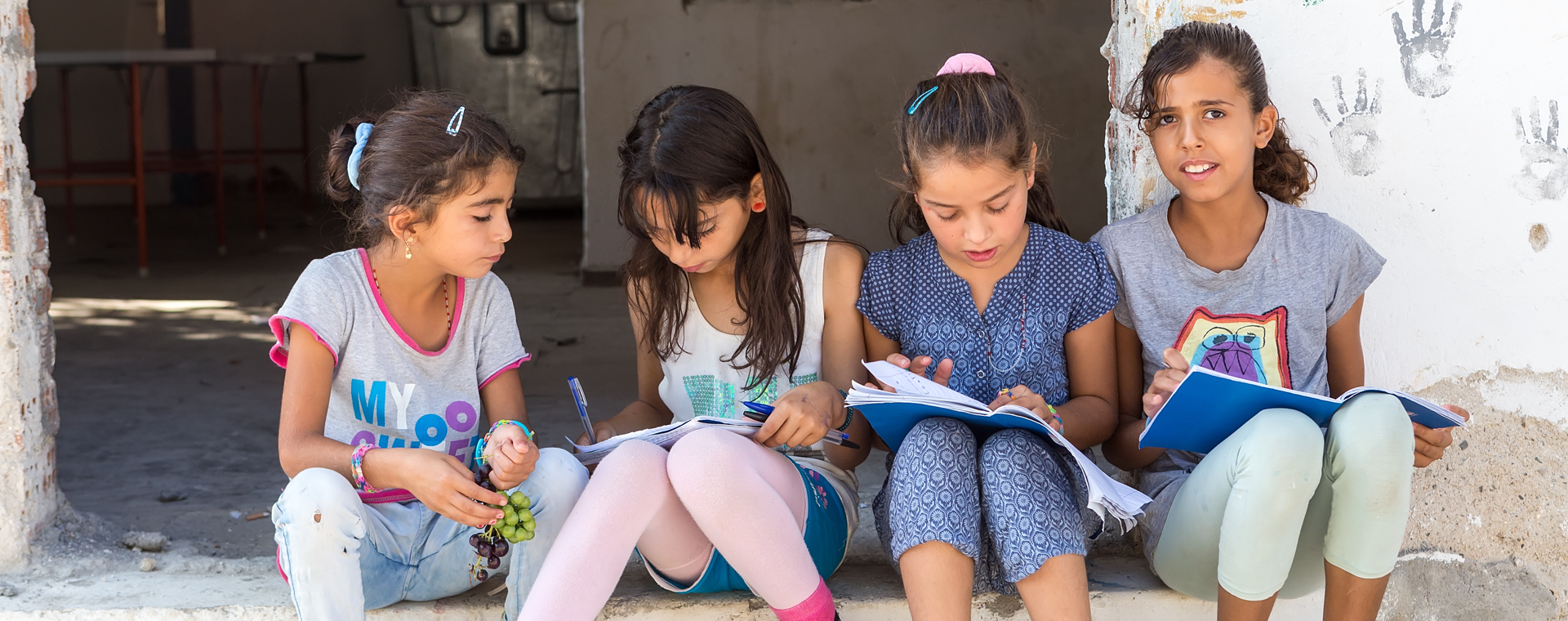
Teresa Wolverton is part of the WISE Emerging Leaders cohort of 2020. Her work with Sesame Workshop, the non-profit organization behind Sesame Street, illustrates the importance of reaching refugee children with early childhood education.
Today, on World Refugee Day, she reflects on how this year’s theme, ‘Every Action Counts’ relates to the educational needs of children.
1. What is the driving force behind the work that you do with children in crises?
It all starts with possibilities. When you’re a child, it seems as if anything is possible. That sense of limitless potential actually relates to the way our brains develop. In the first few years of a child’s life, more than 1 million new neural connections form every second. These initial connections form the foundation for what comes next. As we get older, our brains begin to “prune” and slow down the rate of growth. This means the brain’s ability to change in response to experiences decreases, and it takes more and more effort to make changes to our brains. When we translate this science into practical terms, it means that what happens during the earliest years of a child’s life plays an enormous role in what possibilities look like as they grow up.
In crisis contexts, young children – and their primary caregivers – face extraordinary challenges that affect development in the early years. In addition to interruption to formal and informal learning opportunities, these children are vulnerable to compounding risks such as food and housing insecurity as well as increased exposure to trauma and adverse childhood experiences, such as violence, abuse, or mental illness. This knowledge gives me a deep sense of responsibility to reach children early on, because I know it will be so influential in determining what paths are available to them in the future.
Fortunately, we also know that a lot can be done to foster healthy, positive interactions with kids during their early years, starting with everyday interactions in the home. In thinking about the theme “every action counts,” I’m reminded that we all have a role to play: from primary caregivers who act as their children’s first teacher, to the organizations serving refugee families, to the governments and funders who enable this work.
2. What have you learned from your work on Sesame Workshop’s programs?
We need to be intentional about the way we design and deliver our programming to reach young children. At Sesame Workshop, we are known for working with media. But we also know that not every child will have access to a television or a radio. That’s why we are constantly working to adapt to differing contexts, and ensure not only that the content we create is relevant to our audiences, but also that it can be accessed.
For example, in Bangladesh, access to TVs and smartphones is very limited among the Rohingya population. We’ve embraced this situation, knowing that we can’t rely on traditional media channels. Through our Play to Learn program in collaboration with BRAC, the largest international development NGO, the IRC, and the LEGO Foundation, we’ve developed in-person programs that reach families directly with engaging multimedia and supportive nurturing care from trained facilitators. With current access restrictions, we’re rapidly developing a COVID-19 curriculum and adapting our approach to include regular check-in phone calls from trained BRAC facilitators to offer the latest health messages and practical support for playful learning.
3. What do you learn from children?
There’s so much I learn from children everyday – both in my professional and personal life. One of the most consistent things I see is that all children are aspirational. They’re thinking about how to expand their world. When we listen to children and learn what they aspire to, we are better positioned to help them reach their goals.
Our responsibility is to allow children to be imaginative, creative, and ambitious, and to help them build the skills they need to achieve their goals later in life. For me, this begins with broadening their horizons to show what is possible, starting from an early age, and ensuring that what they are exposed to is thoughtful – uncompromising in ensuring inclusive representation, unafraid to tackle challenging issues with honesty, and unwavering in the commitment to put children’s needs and voices at the forefront.
4. What is your wish for children on World Refugee Day?
I come back to possibilities. My hope on World Refugee Day is that all children, including refugee children, can continue to look at the world as a place that is full of possibilities. There’s no doubt that refugee children face a great deal of adversity, but it is incumbent upon all of us to ensure that they have access to the same set of opportunities as their peers, starting with early childhood. This world of possibilities is within reach if we work together to empower primary caregivers, to generate and share new evidence, to introduce inclusive policies, and to increase the level of investment in this critical work.


